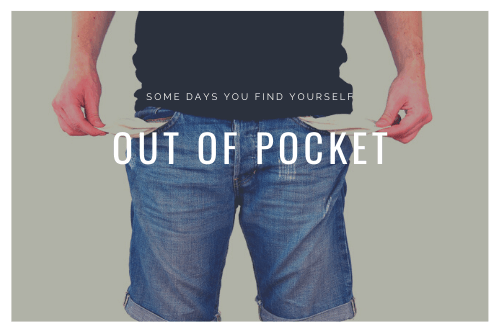
YouTube / iTunes / Spotify / Radio Public / Pocket Casts / Google Podcasts / Breaker / Overcast
Listen to ArtisanEnglish.jp posts & lesson intros here.
English Phrase: Out of pocket
We spend most of our time trying to get into places.
We want to be in with the right people, in the right company and inside when it rains.
Nobody wants to be out of pocket.
Unfortunately, some people sometimes find themselves in that position.
Out of pocket can mean you have no money, and we all know that when you have no money, you also have no friends.
This means that if you want to be in with the right people, you can’t be out of pocket.
Out of pocket also has the meaning of paying for something yourself.
In America, that’s where being in the right company comes into play.
You see, when you go to the hospital in the States, one of the first questions they ask is if you have health insurance.
Good companies have top-class health plans that don’t require you to pay out of pocket for certain services, such as heart transplants or brain surgery.
With other companies, victims, I mean workers, are required to pay a certain percentage out of pocket before the health insurance kicks in.
In Canada, we don’t worry about things like that.
Everything from an ingrown hair to brain surgery is covered by our national health insurance plan.
Any Canadian who is unemployed or otherwise out of pocket for some reason can visit the hospital (nobody wants to stay) and not worry about paying out of pocket for anything except TV service, private rooms, meals, medication dispensing fees, ambulance trips and parking.
They always get you on the parking.
Anyways, if you’re ever in America, make sure you’re in a good company with excellent health insurance.
If you’re out of pocket for any reason, you’ll have to pay out of pocket for everything.
Then you’re really in trouble.
Flesch-Kincaid Readability Test
This post is understandable by someone with at least an 8th-grade education (age 13 – 14).
On the Flesch-Kincaid reading-ease test, this post scores 68.
The higher the score on a scale of 0 – 100, the easier the passage is to read.

